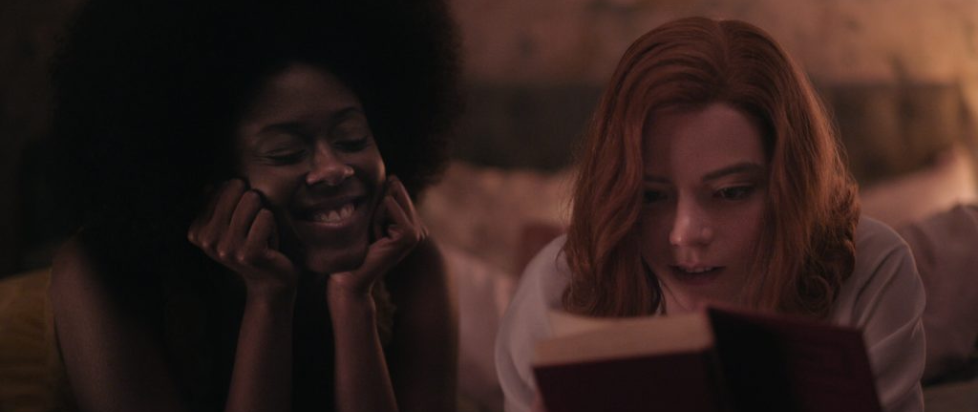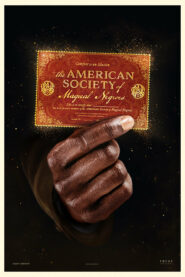
(Hopefully) Waving Goodbye to the Trope of the Magical Negro
When the trailer for The American Society for Magical Negroes first dropped, I was beyond excited to finally face a long standing TV, movie, and literary trope head on. For the uninitiated, the “Magical Negro” is a Black character whose sole existence in said movie or show is to leave the White character with sage advice during the final act, just when our “WC” has decided to throw in the towel. In the 80’s and 90’s these roles were filled by the likes of Morgan Freeman, Whoopi Goldberg, and even Oprah. Man, the 90’s were a wild time, right? Not so fast! It’s with an air of exasperation that I come to you to tell you it is a plot device still in use today.
Spike Lee first coined the term in 2001 during a talk at a Yale campus visit. Noting films such as The Legend of Bagger Vance, The Family Man, and The Green Mile, Lee questioned, “How is it that black people have these powers but they use them for the benefit of white people?”
What was once a sarcastic game of spot-the-trope in my youth has quickly turned into a frustrated sigh of contempt when the Magical Negro appears in modern scenes. Back in 2020, a masterful tale of female ambition debuted on Netflix: The Queen’s Gambit, starring the effervescent Anya Taylor-Joy was a marvelous showcase of tenacity, intelligence, and confident swagger all packaged in a tiny orphan. The premise was simple enough – a coming-of-age period piece about a talented, young female chess player. We watched her navigate the ranks of competitive men with a sardonic smirk on her face whilst battling alcohol and drug addiction and memories of a traumatic past with her mentally unstable mother. We’re talking heart-tugging material at the very forefront.
However, during episode one, we are introduced to a character that had me on immediate alert – Jolene, played by Moses Ingram. Jolene is brought in as the slightly older friend who shows our nine-year-old orphan Beth the inner workings of the orphanage. When asked how long she had been at the orphanage, Jolene remarks that she’s been there a while and will most likely not be adopted. She begrudgingly accepted her fate as a teenage orphan in the 50s. After a couple of years at the orphanage, Beth is finally adopted and taken in by a foster mother who capitalizes on the promising young chess player, and Jolene’s character swiftly disappears… until her wisdom is needed in later episodes.
Years have passed and Beth has grown into an adult with her own full-blown addiction and untreated trauma. So naturally in the middle of her descent, her best Magical Negro friend comes back to cushion her fall. I don’t take issue with the character coming back helping a friend. I do, however, take issue with the fact that the writers thought themselves clever enough to disguise this trope with quotes such as “I’m not your guardian angel. I’m not here to save you. Hell, I can barely save me,”and “I’m here because you need me to be here. That’s what family does.”

But are they family? Up until this point, Beth and Jolene had gone years with literally zero contact, although Jolene has closely followed Beth’s career because that’s what Magical Negroes tend to do. Besides a brief update on Jolene’s job crisis, the character is barely fleshed out. We don’t know her motivations, her aspirations, her quirks, her hurts. If this character serves as someone pivotal in Beth’s life, then why isn’t more time spent establishing her as a three-dimensional character?
The Magical Negro trope has become big enough for Community, the pop-culture riddled sitcom, to reference it in their pilot where Jeff poses a question to a random Black cafeteria worker. “Oh jeez,” he says, “I’m sorry. I was raised on TV, and I was conditioned to believe that every black woman over 50 is a cosmic mentor.” Key and Peele had a sketch where two Black janitors fight over who would get to enlighten the downtrodden white man.
The point is, the joke is running a bit stale and should no longer be a joke that exists beyond 2023. Prevention of the trope’s usage is quite simple – productions need to hire more diverse writers rooms, educate themselves on the trope’s origin, and introduce characters not just to check a box for diversity, but rather because they are fully fleshed out beings who can stand on their own. While I can’t pin all of my hopes for change on one movie alone – especially one that is essentially framed as a romcom with overt political undertones – I do believe that this film is a step in the right direction. By holding a satirical mirror up to a societal issue that has plagued us for so long, we can tackle the issue (and danger) of white discomfort head on. The American Society of Magical Negroes is recruiting members on March 22, 2024. There will be wands and wisdom for all!
———
Created in a lab with the essential ingredients of sugar, sass, and all things spooky, Brea is a film geek with a soft spot for 1940s noir. Her life’s goal is to move to New Zealand and live like a hobbit.


